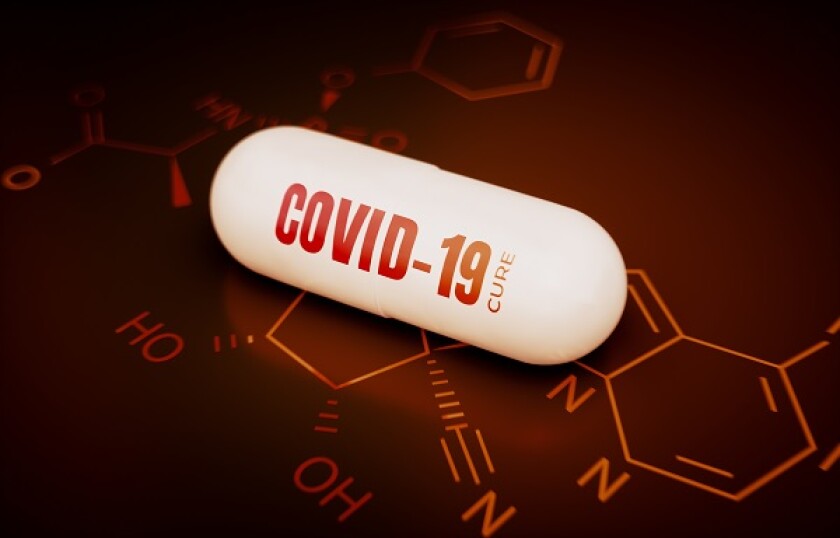Coronil, an ayurvedic drug (formulation of herbs and minerals) developed by Patanjali Ayurved that was initially promoted as a cure for the COVID-19 virus and later approved to be sold as an immunity booster to fight Coronavirus, has run into a controversy. A Chennai-based company Arudra Engineering (Arudra) filed a suit before the Madras High Court, alleging trademark infringement. Arudra sought an injunction restraining Patanjali Ayurved (Patanjali) and Divya Yog Mandir Trust, subsequently impleaded as a defendant, from using the mark "Coronil" or any deceptive variation.
At the admission stage, the High Court based on Arudra's registration of an identical mark "Coronil" granted an ex-parte injunction restraining Patanjali from using the mark "Coronil". Aggrieved by the injunction order, the defendants applied to set aside the same. This insight discusses the contentions raised by the parties, and the order passed by the judge on the injunction application.
The issue before the court was whether infringement provisions provided under Section 29(4) of the Trade Marks Act are satisfied in this case. In other words, whether the following conditions are satisfied:
i) that the plaintiff's trademark is registered;
ii) that the defendants' mark (unregistered) is similar to the plaintiff's registered trademark;
iii) that the defendants operate/seek to use their mark in a different business altogether;
iv) that the plaintiff's registered trademark has a reputation in India;
v) that usage of the said unregistered trademark by the defendants is without due cause; and
vi) that such usage of the mark without due cause takes unfair advantage of or is detrimental to either the distinctive character or the repute of the plaintiff's mark
The trademark has a reputation in India (not the same as well-known mark)
The controversy in this case concerned the meaning of the expression "registered trademark has a reputation in India". Should it be interpreted as meaning a well-known mark in a situation in which the marks are being used for different goods? The plaintiff's mark "Coronil" was in use for chemicals (falling in Class 1), whereas the defendants used the mark for medicinal products (falling in Class 5). The defendants argued that the class of customers and trade channels are different. The court relying on judicial precedent observed that any need to resort to interpretation arises only when there is ambiguity and not when the words are plain and clear and directly convey the meaning. Further, to maintain the sanctity of judicial discipline, the court cannot impute words not in the provision or in the statute and, thus, discarded the said argument. The court on the basis of the client list of the plaintiff and its sales of chemicals under the brand "Coronil" came to the conclusion that they had established their reputation.
Use of a mark without "due cause"
The defendants initially stated that their product 'Coronil' was a treatment for Coronavirus and later backtracked saying that it was an immunity booster for coughs and colds. This as per the plaintiff was an infringement of their registered trademark "without due cause'. Further, such use caused substantial damage to the reputation of the plaintiff's mark with respect to its quality. The plaintiff argued that the marketing of the "Corona Tablet", initially as a treatment for Coronavirus and later stating that it was an immunity booster for coughs and colds, would lead a common man to question whether the Coronil chemical agent marketed by the plaintiff was also inferior in quality to what it had been marketed as, namely as an agent to remove corrosion or prevent corrosion.
The court took the view that as the defendants' product does not cure Coronavirus, the following applies:
"The defendants could have used any name to signify their product as an immunity booster and market the same to the general public rather than play upon the fear and panic among the public by introducing a product ostensibly to cure Coronavirus, when as a fact, it does not and later stating it is an immunity booster. The stand of the defendants does not augur well with their statement that they have a due cause. They do not have a due cause. It must be kept in mind, that there is no cure for Coronavirus anywhere in the world as on date. People are dying. In these tragic times, the defendants seek to make money, money, money. They seek to exploit the fear among the people by projecting that they could cure Coronavirus. There is no cause much less due cause, and much less just cause to permit the defendants [to use] the word 'Coronil'."
Importance of due diligence
The big lesson for brand owners comes from the court's observation, as follows:
"The defendants have invited this litigation on themselves. A simple check with the Trade Marks Registry would have revealed that 'Coronil' is a registered trademark. If they had, and had still, with audacity used the name 'Coronil', then they deserve no consideration at all. They cannot assume they can bulldoze their way and infringe a registered trademark. They must realise there is no equity in trade and commerce. If they had not done a check with the Registry, then they are at fault. They cannot plead ignorance and innocence and seek indulgence from this Court. Either way, indulgence is refused."
The brand selection went wrong, resulting in a restraint order, monetary loss, and bad PR for yoga guru Baba Ramdev's companies, Patanjali Ayurved and Divya Yog Mandir Trust, as result of the adoption of a misleading mark.

|
Ranjan Narula |
|

|
Mohandas Konnanath |












